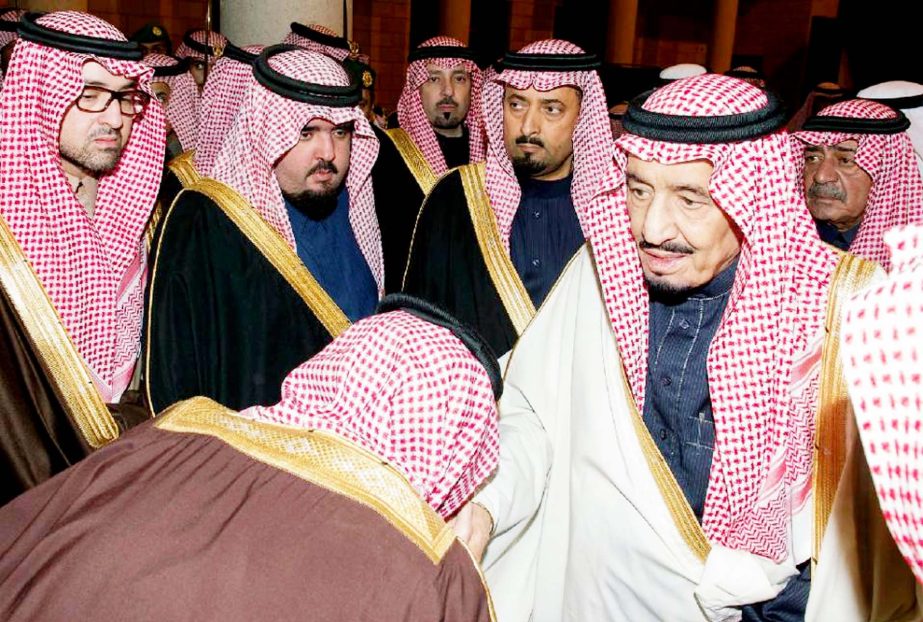
AFP, Riyadh :When Saudi Arabia’s king Abdullah died a year ago on Saturday, his subjects expected their country to keep a steady course under new King Salman.They were in for a royal shock.Within hours of acceding to the throne, Salman, then 79, named his son Mohammed bin Salman, who was not yet 30, as defence minister, setting in motion a year of change while sticking firmly to the Islamic kingdom’s conservative foundations.It was Mohammed, as much as Salman himself, who became the face of the monarchy presiding over one surprise after another during a tumultuous 12 months.The world’s major Sunni power adopted a more assertive foreign policy, began austerity measures to address a record budget deficit, confronted increasing violence from jihadists and faced heightened global concern over its human rights record.”The key shift, I’d say, is the more assertive foreign policy,” said Adam Baron, a visiting fellow at the European Council on Foreign Relations.”We’ve seen the Saudis take a much stronger leadership role in the region, spurred both by feelings of an increased power vacuum and their anxieties over Iran’s influence.”The September death of about 2,300 foreign pilgrims during a hajj stampede in Western Saudi Arabia only added to tensions with Shiite Iran, which claimed hundreds of victims.Three months after taking office from the cautious reformer Abdullah, Salman ruptured with the past and ensured a shift to a younger generation of rulers.He named a new heir in Crown Prince Mohammed bin Nayef, 56, while Mohammed bin Salman became Deputy Crown Prince and second in line to the throne.The kingdom also got a more youthful foreign minister with Adel al-Jubeir, 53.This generational shift was positive, said Iman Fallata, 46, a founder of the Baladi Initiative, which helped prepare women to participate for the first time in municipal elections last December.”The mentality of the people who govern changed a lot,” she said, with younger leaders now in “front position”.Such an endorsement reflects an administration “very in tune with what the Saudi population want,” a Western diplomat said.”And they care about that more than what the West wants or what the liberal elite wants.”Yet, despite the generational shift, “they’re not trying to push social change in the way that king Abdullah was,” said the diplomat.Saudi Arabia remains one of the most restrictive countries in the world for women.The dark-bearded Mohammed bin Salman, now 30, holds extraordinary power with multiple portfolios, including as head of a new body overseeing Saudi Aramco, the state oil giant that could be partly sold off in a share offer under reforms forced by the collapse in global crude prices.

